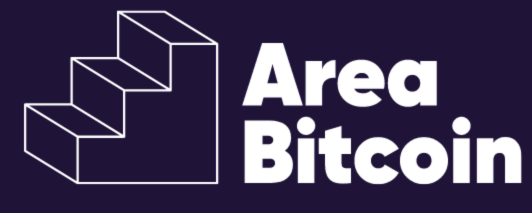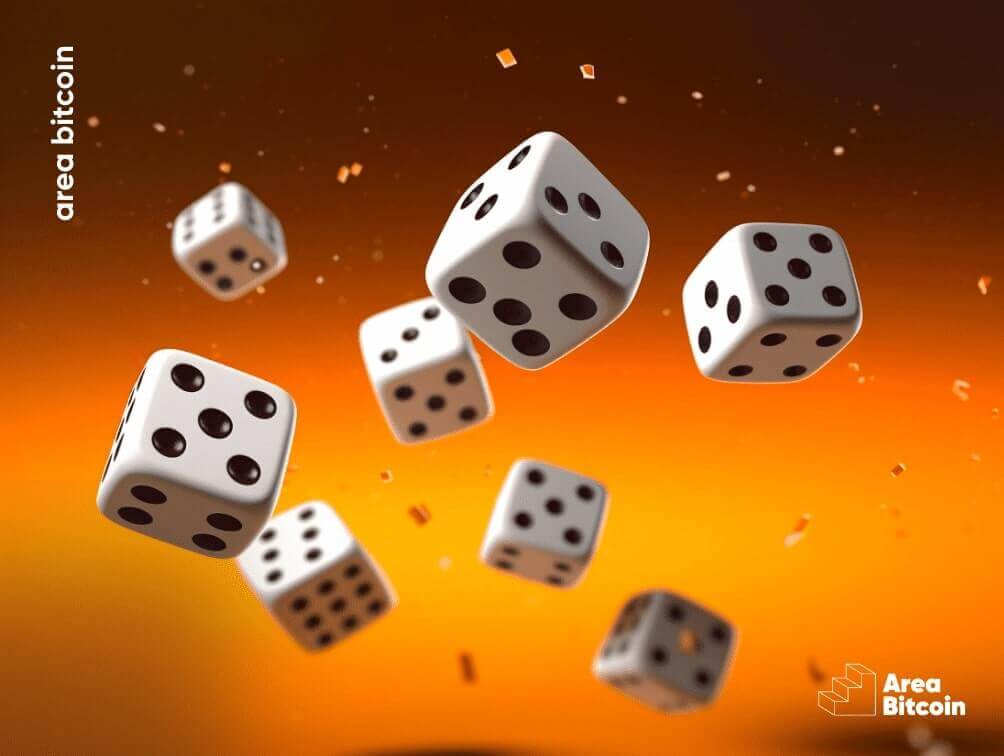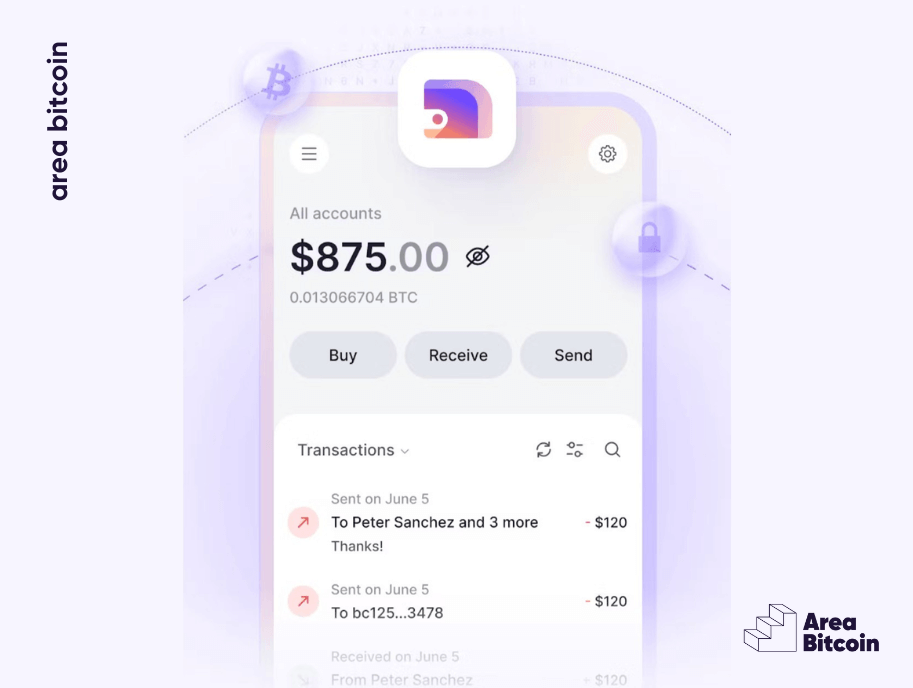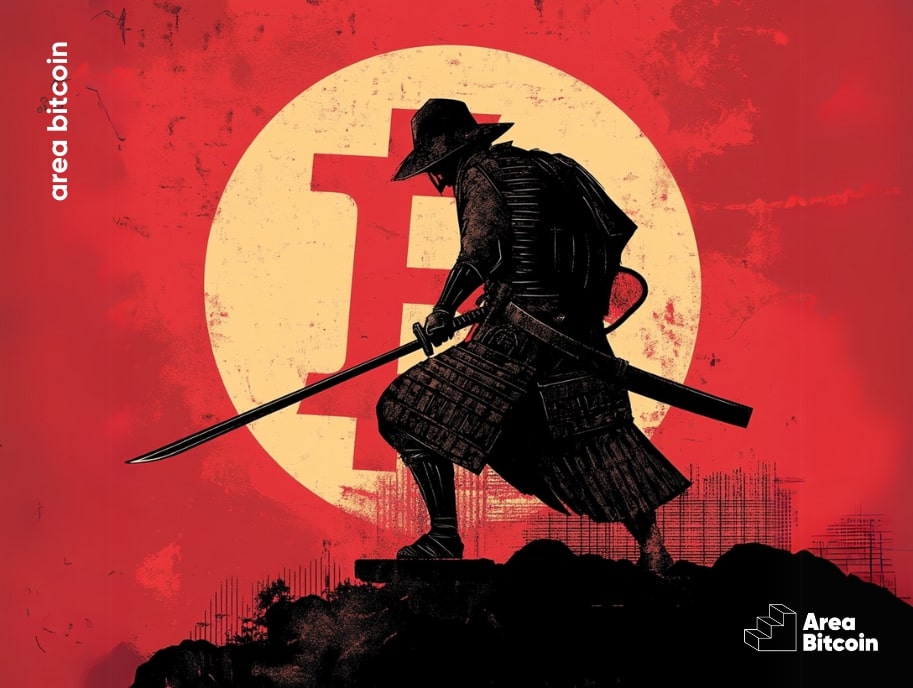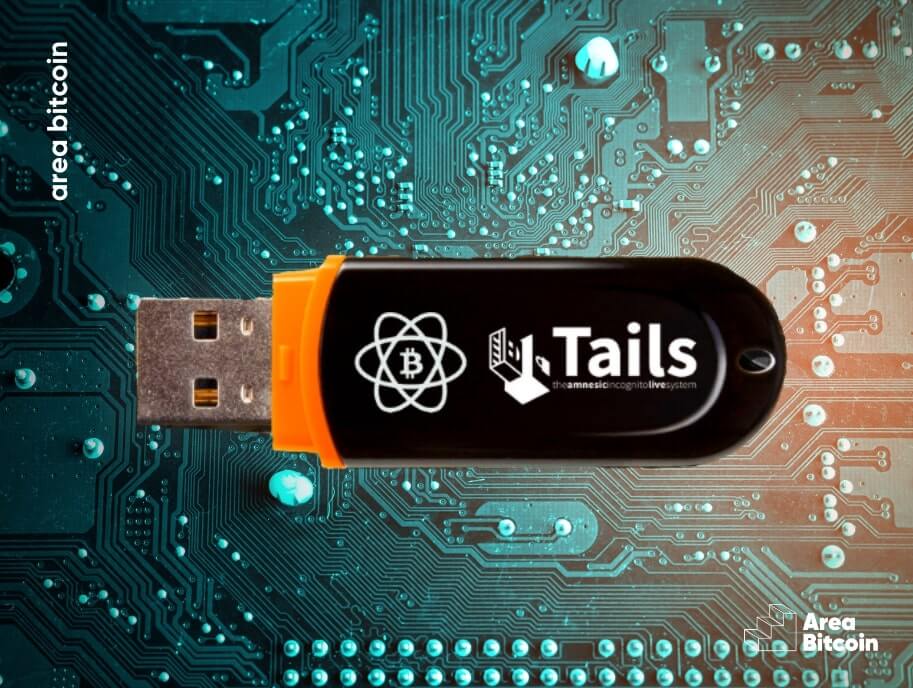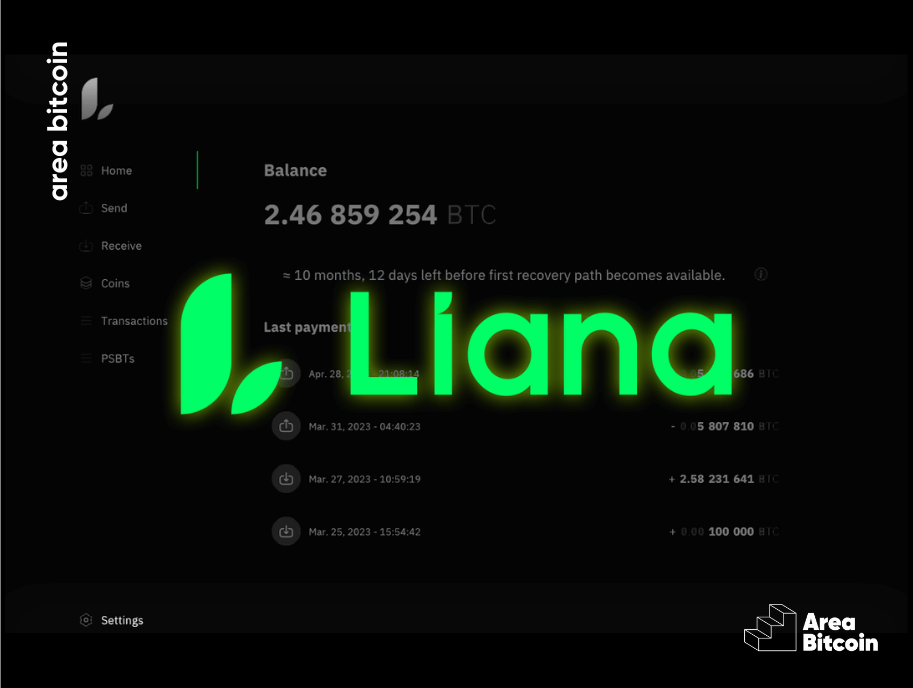You already have Bitcoin in your own wallet, so you no longer depend on exchanges, banks, or any other intermediary. You’ve correctly written down the words to recover your wallet… but a nagging doubt arises:
“What if someone manages to guess my seeds?”
Therefore, in this article, we will clarify the odds of someone guessing the seeds of a wallet and assess whether this is a valid concern regarding your bitcoins.
Additionally, we will provide guidance on how to create seeds safely.
Shall we get started?!
What is a Bitcoin seed?
First, let’s understand what a seed is and why it is key to accessing all the Bitcoins in a wallet.
A seed is a code used to recover the Bitcoin balance in any wallet compatible with the Bitcoin BIP 39 update.
The term ‘seed’ originates from the idea that you can use this code as a seed to generate an entire tree of Bitcoin addresses.
In other words, a single seed can generate multiple addresses and keys that will protect your Bitcoin.
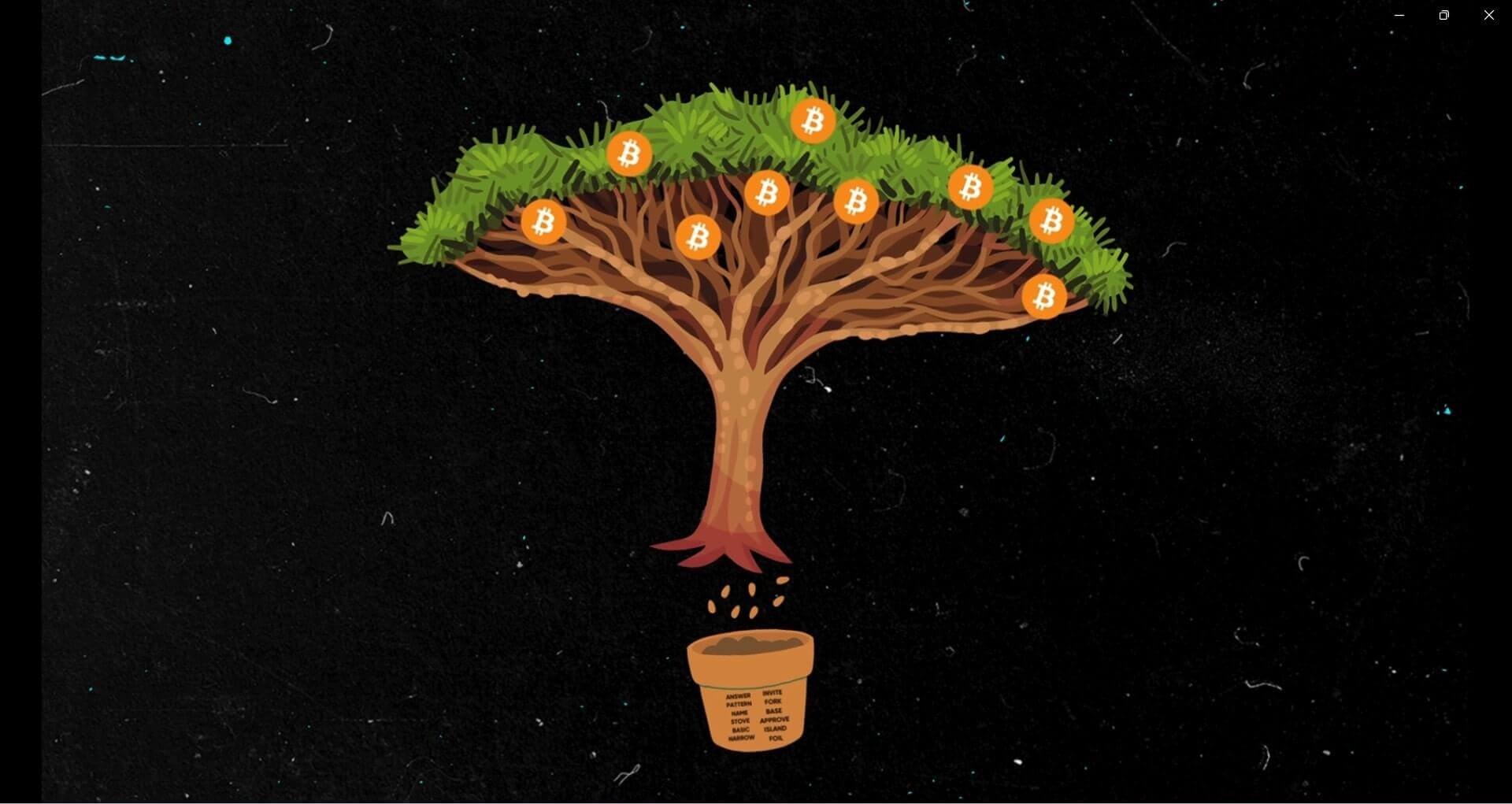
So, if you enter your seed into any BIP 39 compatible software wallet or hardware wallet, you will always be able to access your balance, even if the original wallet gets damaged.
To do this, simply download a new wallet or purchase a new device and recover the balance using your seed phrase.
Zeros and ones?
The seed is actually a code made up of a series of zeros and ones.
However, writing down a long sequence of zeros and ones poses a high risk of error and can strain your eyes. Therefore, the ‘seed phrase’ was created.
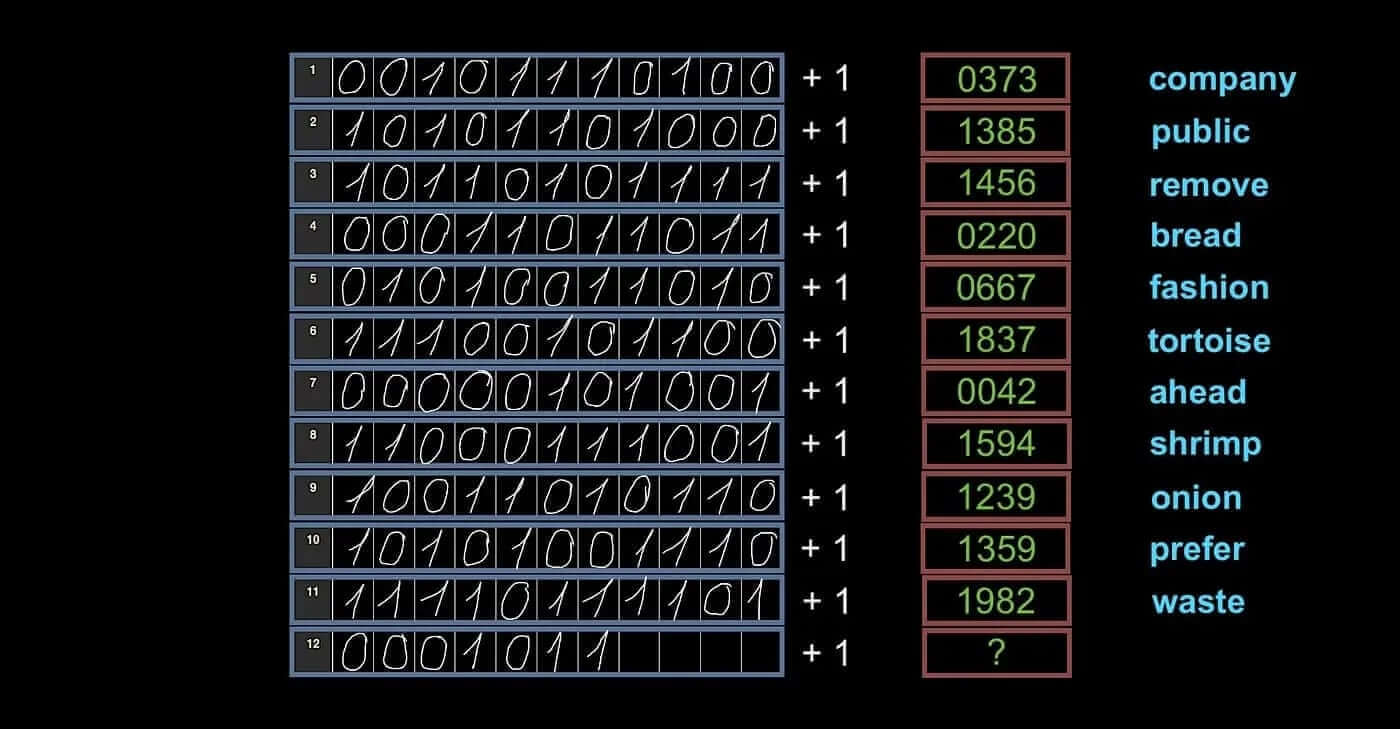
This converts the complex string of zeros and ones into words, which are much easier to write down and less likely to be misrecorded.
You can have a seed made up of 12, 18, or 24 words that, in the correct order, unlock access to your Bitcoin balances in a wallet. These words come from a list that contains 2,048 different words, all in English.
This list is used by BIP 39, as we mentioned before, to convert each word back into a sequence of zeros and ones.
Ok! Now that you know that all those words generated by wallets when setting up a Bitcoin wallet for the first time are encrypted codes capable of generating dozens of addresses, it becomes easier to understand how wallets carry out this process and whether it is feasible to guess these words.
Do you want to understand more about seeds? Then, read our article: what are Bitcoin seeds?
How is the seed generated?
When a wallet creates a seed for you, it activates a feature called a random number generator. This component, present in cell phones, PCs, and physical wallets, generates random numbers—that is, sequences of zeros and ones in a random manner.
The security of your seed being unique lies in this randomness, an effect known as entropy, which measures how random a number actually is.
If you try to create a sequence of zeros and ones on your own, it likely won’t be random, because humans have a natural tendency to identify patterns in everything.
Therefore, if you decide to randomly choose zeros and ones to create a seed, you might end up generating a seed that already exists, because someone else might have thought they were creating entropy when in reality they were just recreating a familiar pattern.
That’s why it is important to use tools that guarantee this randomness.
There have even been reports of people generating seeds from sources like famous songs, the Bible, the Bitcoin whitepaper, or well-known websites. This is not advisable at all, as several hackers use bots to monitor these predictable sequences and could potentially steal funds.
How to generate seeds with entropy?
Bitcoin wallets, both hot and cold, automatically generate this randomness when you first set up the wallet. However, you can also create your own seed by rolling dice or a coin.
However, you need to take certain precautions, such as ensuring you are not using biased dice, which could lead to a nearly standard sequence.
Have you ever considered what might happen if the entire family used the same biased dice and someone accidentally generated someone else’s seed?
With dice
In the dice example, you can split the odds; for instance: if rolling the dice results in 1, 2, or 3, you would record a zero, and if it is 4, 5, or 6, you would record a one.
With that, you need to roll the dice 128 times to generate a 12-word seed or 256 times for a 24-word seed.
Each roll will result in a 0 or 1, depending on which side of the die is facing up.
With coin
In the coin example, you can flip heads or tails, deciding which side will represent zero or one, and then write down the binary sequence.
Ideally, you should use a well-balanced coin to avoid the same issues that occur with biased dice.
Also, note that achieving true entropy requires practical care if you decide to use these physical methods.
The major advantage of using dice and coins is that they are not connected to the internet, which theoretically offers greater security. However, there is a risk of making errors while recording the results, so caution is necessary when employing this technique.
After recording the zeros and ones, simply convert them into words using the BIP39 list, write them down, and store them in a secure location. Ah, it is also advisable to destroy your initial notes so that no one else can find them.
As you can see, there are many ways to create a sequence of zeros and ones for a seed, but the biggest challenge is ensuring the process is genuinely random.
Wallets achieve this using a secure chip, considered a reliable method for seed generation. Ultimately, the choice of method—be it analog or digital—is up to the user.
The fact is that most people prefer to let their wallet handle this process as it is more convenient and typically less prone to errors.
Is it possible for someone to guess my seeds?
Okay, now that you understand how seeds are created, let’s answer the initial question:
- What are the chances of someone accidentally generating the same seeds as me?
- If there are many wallets out there and more and more will be created, could they not end up generating the same sequences?
The probability of someone duplicating your seed is so minuscule that it is mathematically improbable, almost impossible.
To illustrate how unlikely it is, look at the image below:
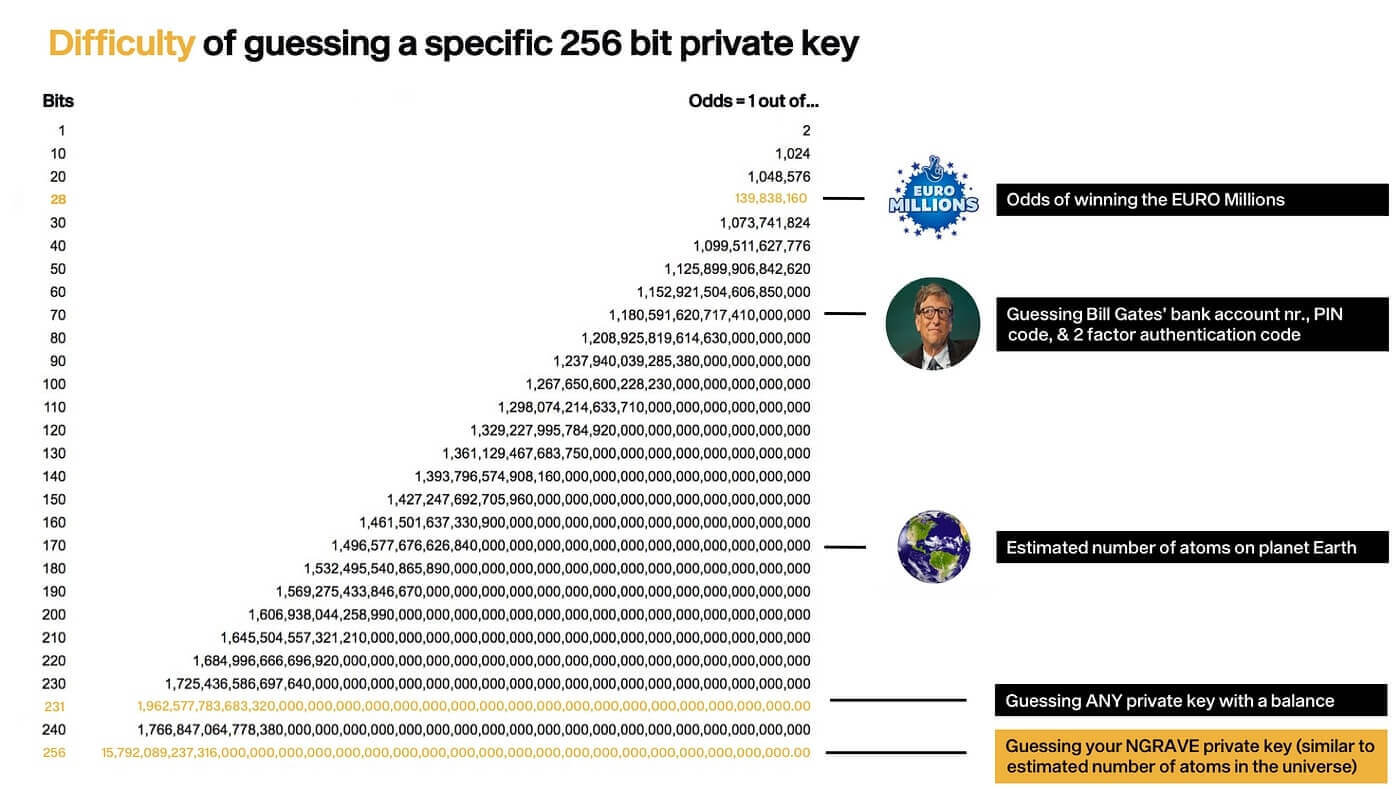
- The odds of winning the lottery are one in over 139 million tries.
- The chances of correctly guessing all of Bill Gates’ bank details and accessing his account are one in a sextillion.
- The likelihood of identifying a specific atom on planet Earth is one in an astronomical number, something like 10 to the power of 51.
- The chance of hitting any private key, with a balance, is one in 10 to the power of 75.
- And finally, the odds of hitting a seed are one in 10 to the power of 77, more than one in a decillion chances. It’s comparable to finding a specific atom in the observable universe.
In simpler terms, it is extremely difficult for someone to guess your seeds!
As you can see, this number is so vast and large that it baffles the human mind.
You are far more likely to be struck by lightning, attacked by a shark, or experience a plane crash ten times in this lifetime than it is for someone to discover your seeds.
It is infinitely easier for someone to steal your bitcoins by taking the seed directly from you if you do not keep it securely at home, than by attempting to guess it through trial and error.
Most people who lose their BTC do so because they do not adequately secure their own seeds, not because someone guessed them.
So, how can you further increase the security of your seeds?
How to store the seeds safely?
Bitcoin operates without a bank account, manager, or support. It’s like a language, akin to mathematics, so it entirely depends on you to use it responsibly and take good care of your keys.
Therefore, one way to increase the security of your bitcoins is to create a multisig wallet, which requires more than one key to access your funds. This complexity makes any attempted theft much more difficult.
I hope you enjoyed this content and understood how difficult and challenging it is to simply guess a specific seed.
So, relax! Be sure to share this post with friends and family, and opt out!
Share on your social networks:

One of the leading Bitcoin educators in Brazil and the founder of Area Bitcoin, one of the largest Bitcoin schools in the world. She has participated in Bitcoin and Lightning developer seminars by Chaincode (NY) and is a regular speaker at Bitcoin conferences around the world, including Adopting Bitcoin, Satsconf, Bitcoin Atlantis, Surfin Bitcoin, and more.
Did you like this article? Consider buying us a cup of coffee so that we can keep writing new content! ☕
